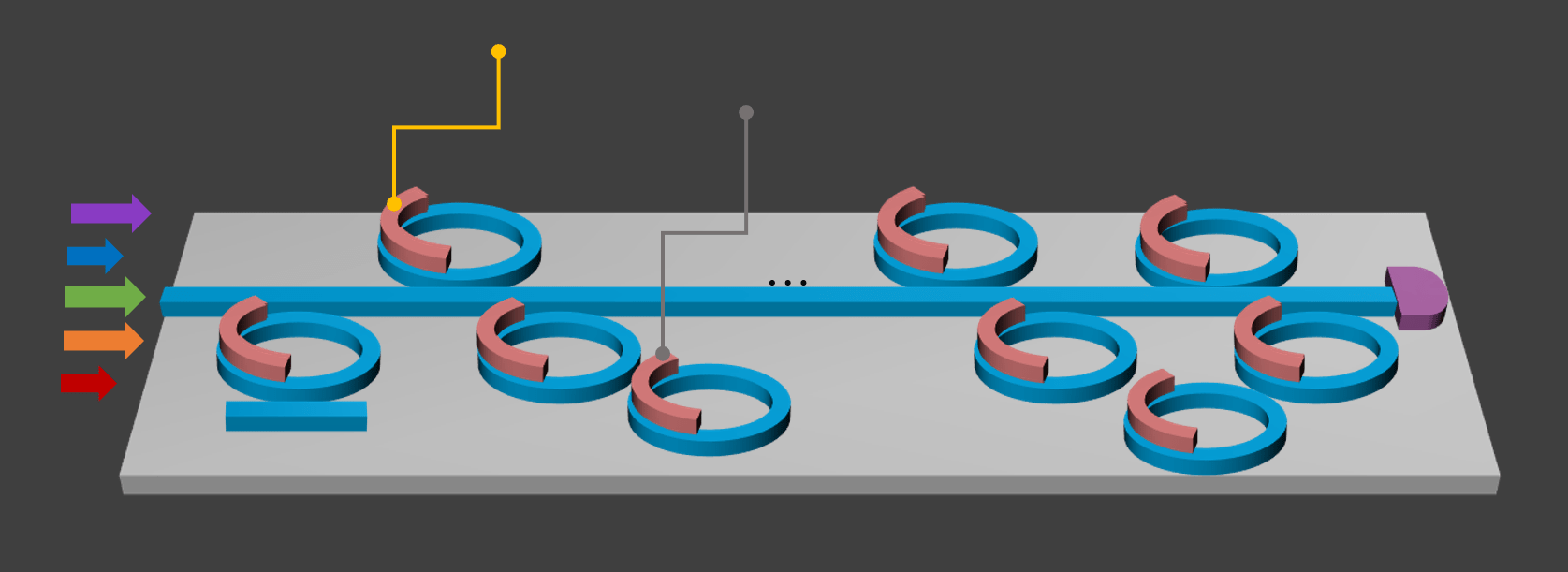The FLoQuET lab, led by Prof. Avik Dutt, is an interdisciplinary team of motivated scientists and engineers working to harness photons (or light) for advancing the entire spectrum from fundamental science to applied technologies. We are interested in pushing frontiers at the intersections of quantum information science, nonlinear optics, quantum technology, nanophotonics, and higher-dimensional physics.
Our lab name FloQuET − an acronym for FearLess Optics, Quantum Engineering & Technology − is inspired by the Floquet theorem, and by UMD’s pursuit of Fearless Ideas. The Floquet theorem governs the solutions of (time-) periodic differential equations, and is more familiar in physics as Bloch’s theorem for calculating band structures of periodic lattices. We use Floquet-Bloch theory extensively in our work.
Progress in optics and photonics has revolutionized long-distance communications, imaging, sensing and spectroscopy over the past few decades. Our lab focuses on harnessing the beneficial properties of light particles – photons – for next-generation technologies. We build chips that fit on the tip of a finger, with micro- and nano-sized patterns etched into them, and yet can deliver performance and bandwidth comparable to meters or kilometers of traditional optical platforms. The tight confinement of light into nano/micro-devices leads to strong light-matter interaction, allowing us to explore quantum and nonlinear phenomena in these systems. Examples of such next-generation technologies include the quantum internet, LiDAR, quantum-enhanced sensing and metrology, ultrafast signal processing and quantum simulation. Beyond applications in disruptive technologies, our team is interested in fundamental studies of light-matter interaction, by exploring high-dimensional physics and topological phenomena that are difficult or challenging in today’s state-of-the-art platforms.
TLDR: Check out below a YouTube short of our group’s collaborative meeting culture, a glimpse of a nanophotonics lab (from the PI’s Ph.D. days). You can read a high-level overview at this news article and this other news article on the Mechanical Engineering and Quantum Technology Center websites.
Interested in being a part of this team? See more details at the following links:

